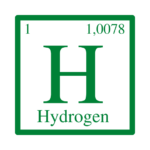Complex Hydrogen Stimulation Technology
Innovative solution for development conventional and unconventional oil and gas reserves
About
Managed multifactorial thermal and chemical process is defined by creation in the near wellbore area active gases, primarily hydrogen, high temperature and pressure, fracturing and high temperature acid vapour : nitrogen acid (HNO3) and hydrogen acid (HCl), and sometimes fluoric acid (HF) treatment of the porous media. Stage acid neutralization and surfactants provide long term positive results.
Using high-energy combustible and oxidizing mixtures reaction energy reaches 14-20 MJ/kg and hydroreacting agents (HRA) based on sodium, aluminum, lithium and boron.
Hydrogen envolved at the intial stage of thermochemical process improves permeability of reservoir and enables filtration of chemically active components into the pore media wherein their secondary reactions with mineral part of formation and colmatans take place.

Sophisticated multistage thermal and chemical impact on the reservoir of active gases, primarily hydrogen, high temperature and pressure, hot acid vapors and others. The main advantage of the technology – long period of impact.
Hydrocracking process of ARPS with formation of gas and distillate fractions is implemented at the high-temperature stage of the process (250°-350°) under high pressure and with the presence of atomic and molecular hydrogen and catalyzers.
Reaction of hydroreacting agents with water decreases water content of wellbore area, it brings to dehydration of heterophase reation medium and increase of concentration of nitric and hydrochloric acids evolved during reaction which finally brings to evolution of nitrohydrochloric acid which chemical activity is much higher than the activity of each of these acids separately. That allows effectively influence the solid phase of cementing and drill fluids, mineral part of formation both for terrigenous and carbonate reservoirs.
High-temperature effect onto the rock being treated with the reaction products leads not only to chemical effect of formation as well as fracturing of the formation due to high pressure and temperature.
Advantages
- Main agent – mixture of hot gases, with atomic and molecular hydrogen
- Oxidant – water
- Thermo dynamic potential is realized in the formation
- Influence of the reaction products to the formation and oil and gas is multifunctional:
Hydrocracking;
Hot acid-alcaline treatment and pore media deformation
Fracking and surfactants treatment
Temprature impact
CO2 impact
- Stimulation fluids and reaction components are environment friendly

Scope of use
- Hard-to-recover reserves;
- Heavy oil deposits (asphalts, resin and paraffin deposits);
- High content of paraffin in oil;
- Viscous oil;
- Low-permeable reservoir and tight formation;
- Condensate banking;
- Salt deposits;
- Drilling muds and cement muds formation damage
Easy to implement
- Adaptability to geological and construction features of a particular well;
- High controllability of the multi-stage thermal-gas-chemical process as regards the main parameters (temperature, pressure, and chemical reaction flow);
- Development of the design of each well treatment, including:
- Diagnostics of the causes of low well productivity;
- Simulation and calculation of the integral action of the technology with account of well individual characteristics
- Prognosis of effectiveness and flow rate.

